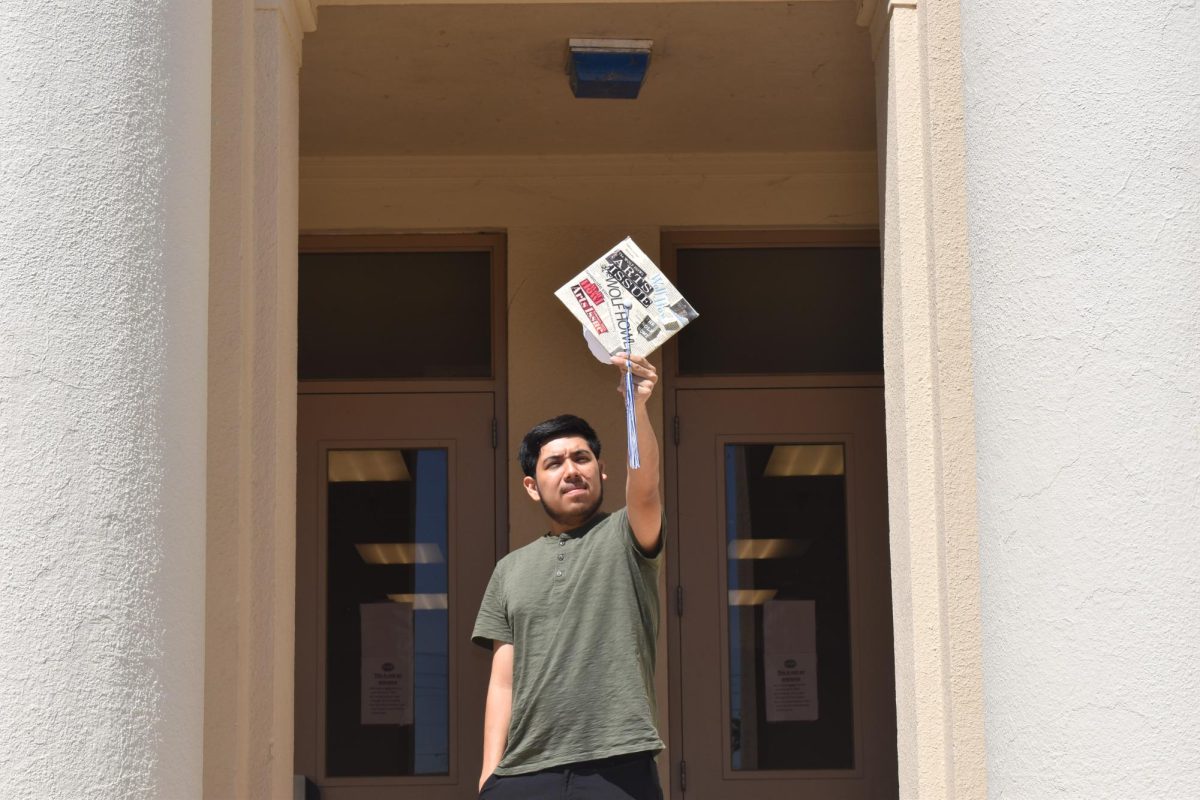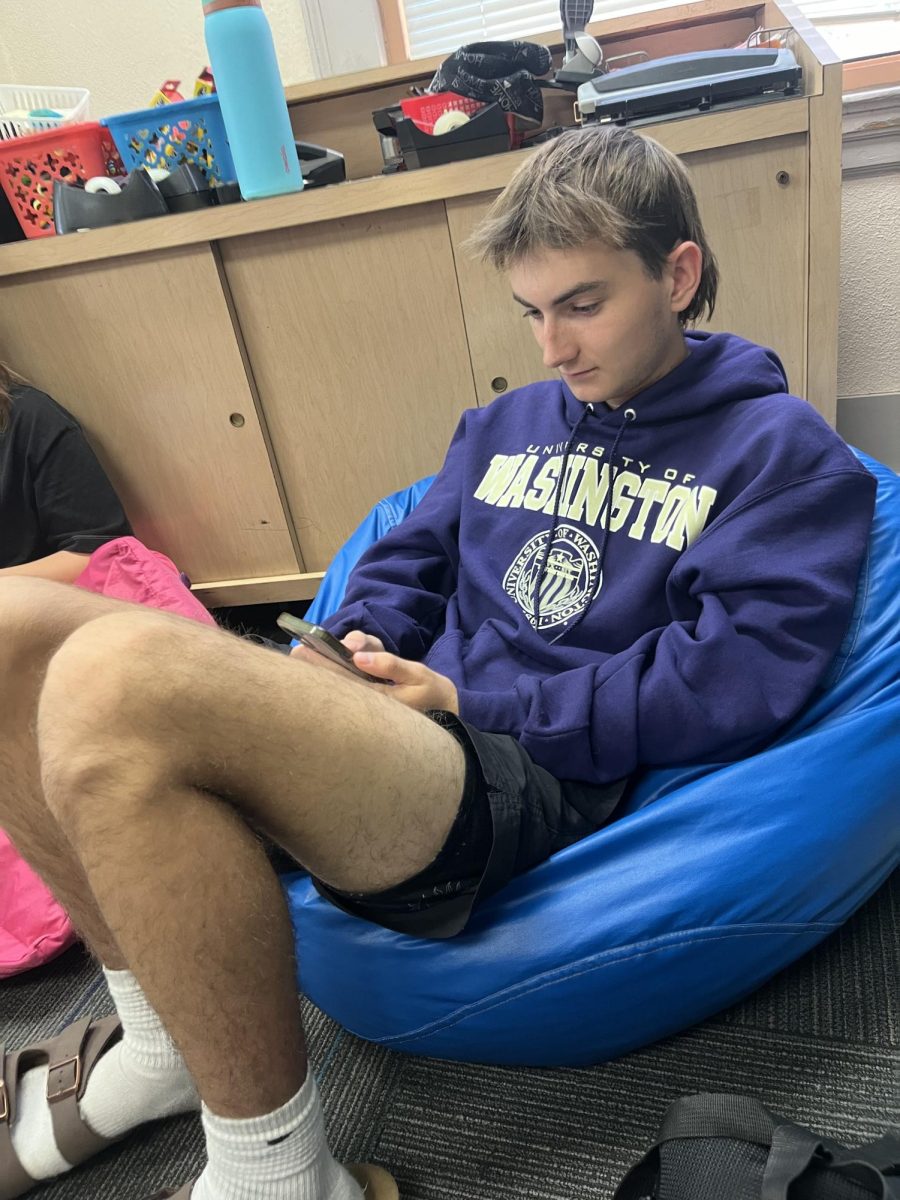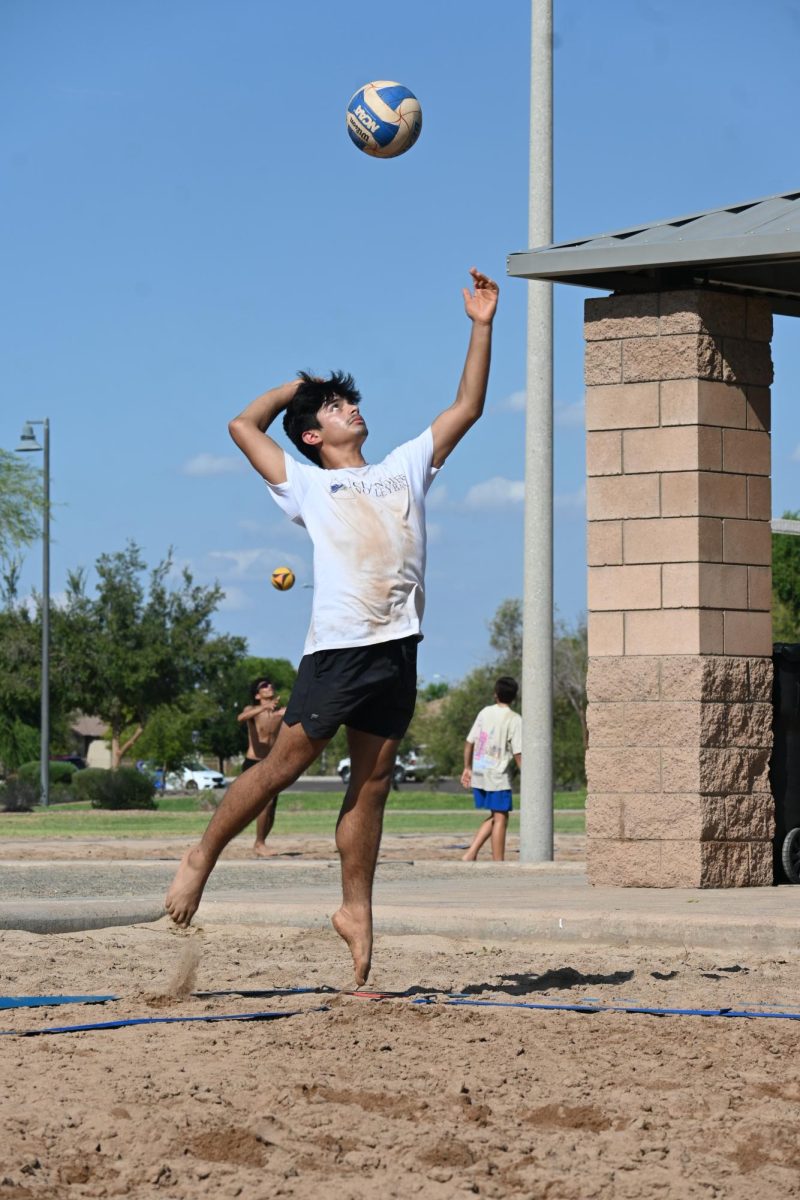In a world where smartphones are now as essential as textbooks, the debate over banning phones in schools is heating up. With Arizona’s Superintendent Tom Horne pushing for a statewide ban on cell phones in classrooms, both students and teachers at Chandler High are weighing in on the issue—and they’re not seeing eye-to-eye.
Horne believes phones are a distraction, lowering student performance. He cited research showing teens receive over 200 notifications a day, many during school hours. “Imagine being a teacher trying to compete with a phone for a student’s attention,” Horne said in a news conference on August 22. “It’s outrageous and unacceptable” (AZFamily, 2024).

Teachers like Caroline Sheridan agree that phones can be distracting. “Phones pull students away from meaningful interactions,” said Sheridan, who teaches Criminal Justice and Honors English 10. “Without their phones, students are more likely to engage in group discussions and cooperative learning.” For Sheridan, it’s about more than just academics; she feels phones disrupt the opportunity for students to take a mental break from the constant need to stay online.
But not everyone shares Ms. Sheridan’s view. CHS junior Lily Cash, like many students, finds the idea of a potential phone ban frustrating. “I need my phone most when I’m not in class. If I leave it in a locker and something happens, how am I supposed to communicate?” she asked. Cash emphasized the importance of having her phone for safety, particularly in light of the increasing concerns over school violence. “There’s a lot of danger surrounding schools,” Cash said. “I wouldn’t feel safe without a way to communicate in an emergency.”
Cash also noted that students, especially those with extracurricular activities, need to be able to manage their schedules. “I often need to inform my parents of changes, and a quick conversation during a 7-minute passing period just isn’t enough,” she explained.
So where does the solution lie? Both sides of the debate present valid points. Phones can certainly distract from learning, but they’re also critical for communication and safety in today’s world. Rather than a complete ban, Cash suggests a compromise, “Keep phones in backpacks or pockets unless absolutely necessary. Most students respect that and aren’t constantly on their phones.”
As schools across the state and country consider stricter phone policies, it’s clear that there’s no one-size-fits-all solution. The challenge is finding a balance between minimizing distractions and ensuring students stay connected when it matters most. One thing is certain—whether for focus or safety, the debate over phones in schools is far from over.























